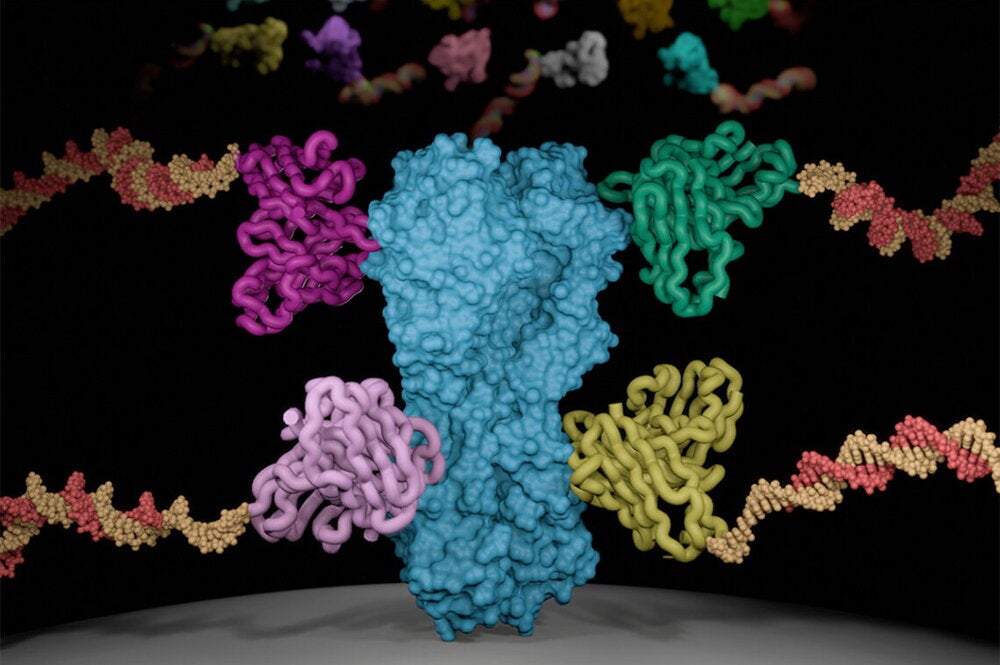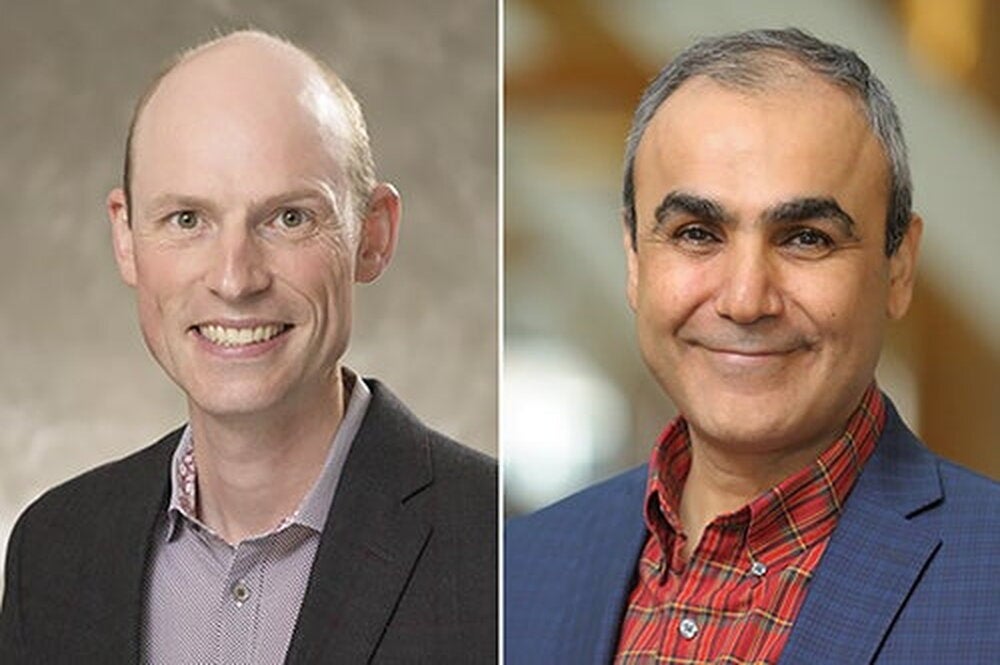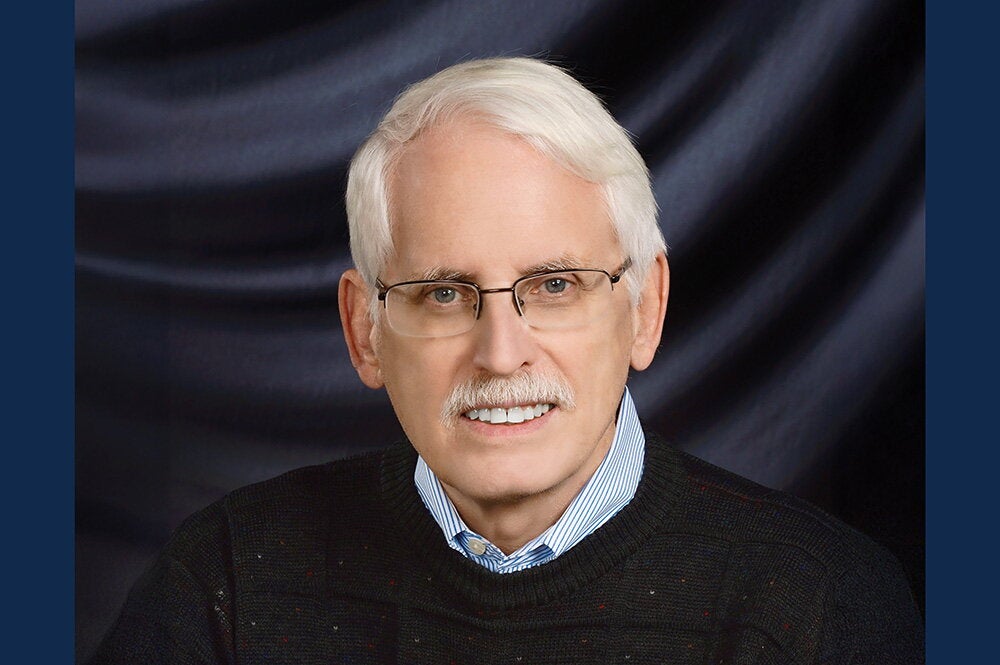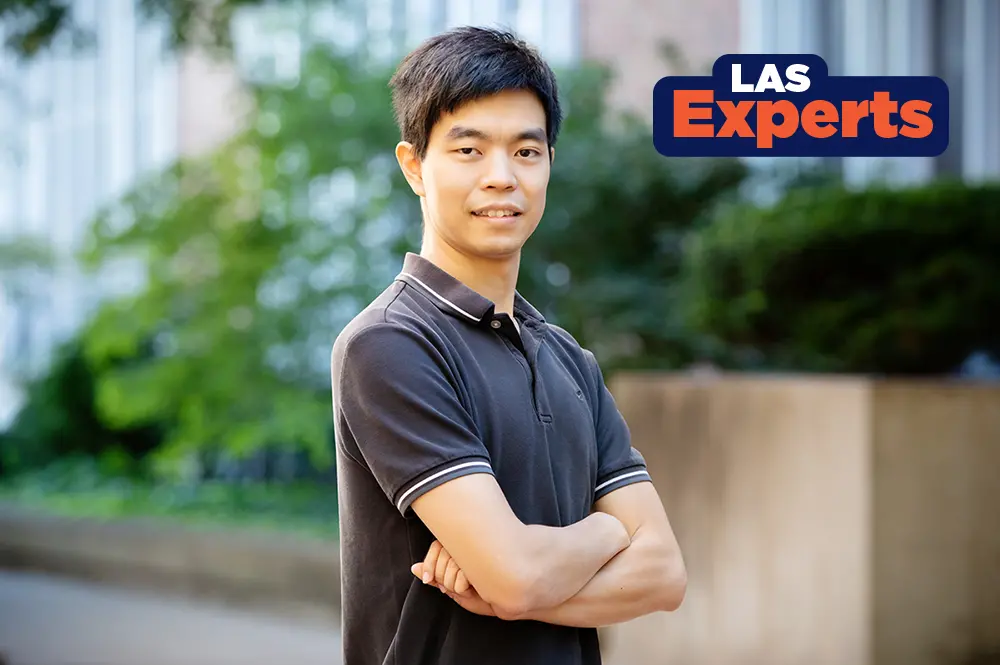
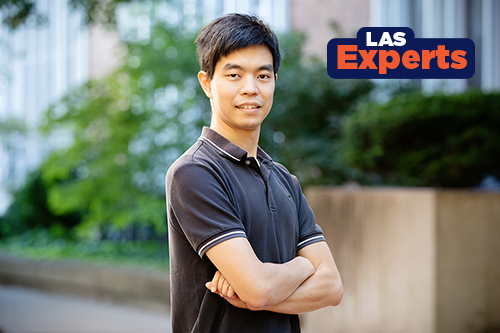
When Nicholas Wu was in middle school, a SARS pandemic swept China and his home city of Hong Kong. The impact was devastating enough that Wu decided to devote his career to combating infectious diseases—and his path has led him to the University of Illinois.
Wu, a professor of biochemistry who is also affiliated with the Carle Illinois College of Medicine, recently received a National Institutes of Health Director’s New Innovator Award, part of the Common Fund’s High-Risk, High-Reward Research program. He is among 64 new innovators recognized for unusually innovative research from early career investigators who are within 10 years of their final degree or clinical residency and have not yet received a research project grant or equivalent NIH grant.
With the three-year award, Wu plans to develop a platform that will allow him to study hundreds of thousands of antibodies’ structures and binding ability in a single experiment.
Wu recently explained his career path in more depth to the College of LAS.
When did you arrive at U of I?
2020
What is your area of expertise?
The influenza virus, recently SARS-Cov-2, virology, and some immunology.
How did you become interested in this area of study?
I grew up in Hong Kong, and there was a pandemic that was national in 2003. It wasn't global like it is this year or last year, but it was quite devastating to Hong Kong. During that time I was a middle school student. Basically the whole city shut down. I had never seen that before and I don’t think the people in Hong Kong had seen such a thing before. It was kind of a local thing and it was really bad. That’s one of the reasons why I wanted to devote my career to infectious disease, because I saw how powerful it is.
What’s the impact of your work?
I work on antibody and virus evolution. I’m trying to understand how the SARS CoV-2 virus evolves, and how to develop a response to it. Right now the news is about variants—we have all these new variants. The vaccine doesn't seem to be working as well for some of these variants, the vaccine needs to be updated, so some of our research has our implications on how people should refine the vaccines. That’s something that all of us research, and vaccine development is an area that I want my research to contribute to. This is also related to the community as well in helping to improve public health, and the response to situations like where we are right now.
How is your field changing?
I started working on infectious disease basically 10 years ago during my PhD (education). It’s something that impacts Southeast Asia a lot. So, one thing I realized is that people bring knowledge from different fields into the research on SARS-CoV-2, which I think helps a lot to push the research on COVID-19, like the vaccine design. It’s a result of knowledge accumulation over the past 20 years. There are also some key designs that people borrowed from the HIV vaccine design.
What do you enjoy most about teaching? What advice would you offer to students interested in your field?
I enjoy seeing student growth internationally, because I think that’s the point of education: teaching and being motivated. To students, I would say try to read a lot. I think when doing research, probably in general, it's important to read a lot of different research in different areas, even though some areas are not your specialty, because people have come up with all these creative ideas. Not restricting yourself to a certain view is important, so that you can have some knowledge from different areas.
What’s your proudest achievement?
This is an interesting question. Research wise, I would say last year when I was a postdoc with my colleagues, and we published the first antibody structure. An antibody binds to the COVID-19 protein infrastructure, and we managed to get it done really quickly.
That was one of my proudest achievements in terms of research, but I think that the more important thing is that there's just no way to take an answer from only one person, so I had to work with my colleagues really closely. I'm very proud to say that we managed to work together really well. I really enjoy collaborating with people.
I learn from people who are senior, and I work with people who are junior. I supervise their research, and I think one of the things I'm really proud of is that I can see them grow. I can see them improve through their interaction with me.
